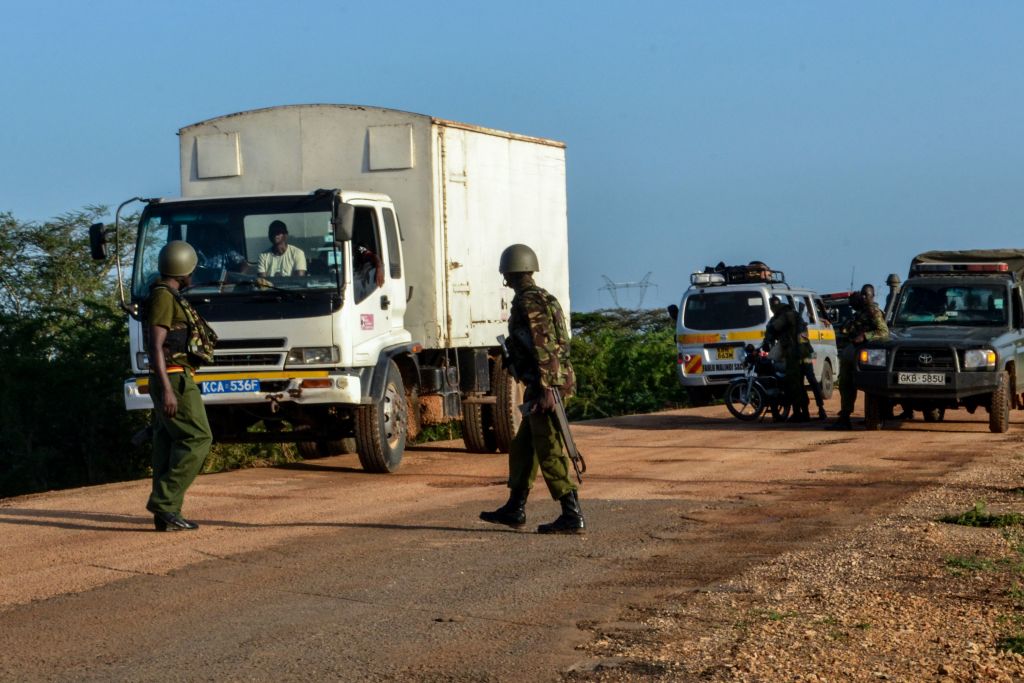ADF STAFF
A dramatic rise in attacks by al-Shabaab extremists has scuttled plans to reopen the border between Somalia and Kenya, which closed in 2011.
Kenya’s Interior Cabinet Minister Kithure Kindiki made several visits to the region in June and vowed to defeat the al-Qaida-affiliated group.
“There is no turning back on this issue, but since we have witnessed increased attacks from the terrorists, we will delay the reopening for a short period to enable us to deal with the militants first,” he told local reporters, according to The Africa Report magazine.
After the shutdown of multiple border entry points, al-Shabaab built smuggling networks and began funding its operations by imposing taxes on traders bringing contraband into Kenya.
Nairobi-based security analyst Peter Tuya said al-Shabaab, which is reeling from ongoing counterterrorism operations in Somalia, is pushing into Kenya because it can’t afford to lose tax revenue.
“The objective here is to make sure the government does not open up those areas for development,” he told Voice of America. “Because it will be cutting out the supply line to them, and because for a long time they have been using the issue of marginalization to recruit people to their networks.”
The rise in terrorist attacks on the four Kenyan counties along the border with Somalia has coincided with the planned reopening of the border in phases from June 15 to August 15.
The attacks also have grown deadlier.
The Armed Conflict Location & Event Data Project recorded 19 violent incidents by al-Shabaab in June, nearly double the monthly average in 2023 and more than twice the number in June 2022.
Attacks in June 2023 killed more than 30 people, most of them security forces, and injured dozens more in the border counties of Mandera, Wajir, Garissa and Lamu.
Improvised explosive devices, such as roadside bombs, have become al-Shabaab’s preferred weapon, as they killed 20 Kenya Defence Forces Soldiers and civilians between June 13 and 25 alone.
Tuya said targeting security forces instills fear and benefits recruitment.
“As they are targeting the security personnel, they want to create fear in the minds of the public, that … ‘If we have the capacity to target the security personnel, what about you?’” he said. “So that they create the environment of fear and make the people there helpless and to subscribe to their ideology.”
While Kenya has beefed up its military presence to respond to al-Shabaab’s forays, the porous border has allowed militants to sneak into the country in small numbers. With its dense forest cover, the massive Boni National Reserve in Garissa County provides an ideal hideout from which to launch attacks.
Kenyan politicians such as Dido Rasso have been debating the country’s approach to security and are calling for more funding for intelligence-gathering, witness protection and countering youth radicalization to build resilience at the community level.
“Our people must rise up, particularly the people of the North,” he said to the national assembly on June 29. “We should not just leave it to the security forces to handle these things.”
Rasso urged elders and religious leaders to work with young people who are vulnerable to recruitment.
“So long as we don’t address the issue of radicalization, and people are helping this particular thing to thrive, then we may continue to face this menace,” he said.
Parliamentarian Farah Maalim cautioned colleagues who had called for the Kenyan military contingent in Somalia to withdraw to the Kenyan side of the border and defend against al-Shabaab.
“You don’t use a conventional force,” he said. “They go in small numbers of four, five, six and they carry out these attacks. They don’t go in thousands. They don’t face the forces in a frontal attack. They hide.”
Maalim urged the assembly to bolster Kenyan police reserves in the four border counties and “put them in a position to track them [militants] and smoke them out wherever they go.”
Researchers Isel Ras and Halkano Wario of the South Africa-based Institute for Security Studies support the community-led approach. They also have advocated for improved border surveillance and regular on-foot security patrols.
“County governments should be given more decisive roles in co-funding local police reservist patrols, sensitizing communities and allocating cash to projects that tackle the drivers of radicalization and recruitment into al-Shabaab,” they wrote in an article published on July 12.
“Kenya also needs to strengthen community policing structures and invest in coordinated multi-agency and cross-border intelligence-gathering.”

